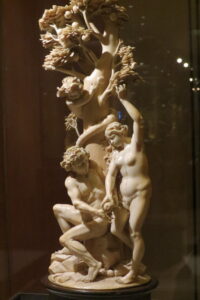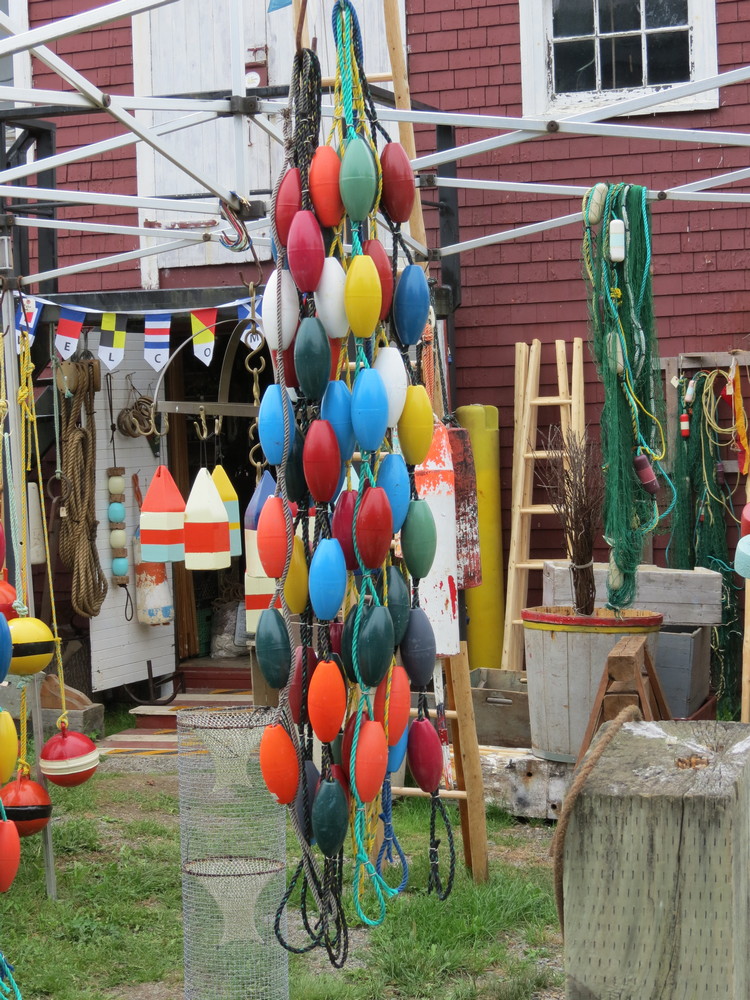RS23: Spit-Wives and Dead Goats
A: I saw an interesting story on the BBC News site this week about a young Palestinian man named Ayman Safiah who is the only classically trained male ballet dancer to emerge from the Palestinian culture.* He grew up in the Galilee in a town where Arabs and Jews treat each other well, and where some of its artists and writers have achieved international recognition. Despite his success, he’s meeting with intense prejudice from his own community. He reminds me a lot of you. Knows who he is. Doesn’t let prejudice and hatred stop him from doing what his heart and soul tell him to do.
I like the quotes from him: “‘My desire to study classical ballet was simply beyond the understanding of my classmates,’ he explains. ‘They only knew that it was something women enjoyed. It was completely alien to them.'” He also says, “‘My parents knew that ballet was going to be a large part of my life from early on . . . Even my grandfather accepted my career choice even though he didn’t fully understand what it entailed.'”
Yup. He reminds me so much of you. So stubborn. So determined to break through cultural taboos that have nothing to do with God or soul or faith.
J: Well, yes, I was told more than once I was more stubborn than a Hebron camel. It was a saying from my time.
A: Ayman Safiah faces huge opposition from the Palestinian community because men aren’t “supposed” to be passionate about dance. Even the fact that he’s worked extremely hard for many years and has graduated from the Rambert School of Ballet and Contemporary Dance in Richmond, England, has not earned him any respect from his Arab compatriots. Some insist that performing ballet is against Islam. Two thousand years ago, you faced the same kind of rejection and prejudice for daring to practise medicine in the Galilee. Tell me more about that.
J: It’s interesting that Safiah makes the link between ballet and women. In my time, the same kind of link existed between healing and women. Healing was something that women did, and only women were interested in learning more about it. No respectable man in the Judeo-Hellenistic culture I grew up in would have stooped to the level of the local village spit-wives. But I was passionate about healing.
A: Spit-wives?
J: A derogatory term for the women who carried on the ancient traditions of herbal medicine. They used poultices and teas and medicines handmade from various plants and minerals. From time to time they were known to use spit in their remedies. Since bodily fluids, including spit, were considered unclean — religiously impure — in the Jewish religious tradition, these traditional remedies and their practitioners were looked upon with contempt. Women from the lower classes of society shared healing information among themselves and did their best to help each other, since nobody else was willing to help them.
A (eyes rolling): Oh come on, now. What about all those religious temples where people could make their sacrifices and prayers for divine healing? Who needs medical science when you can ask a priest to slaughter a female goat for you?
J (smiling): A sentiment I certainly agreed with and talked about. Often. And loudly.
A: Didn’t win you any popularity contests, did it?
J: People of prejudice don’t like to have their prejudices challenged. And prejudices about illness and healing were extreme in my time. There’s a ridiculous idea floating around in liberal religious circles today that people should tolerate and excuse these ancient prejudices because “it’s just the way things were” and “they didn’t know any better.” This is crap. The Greek culture had a long tradition, dating back hundreds of years before my time as Jesus, of treating illness and healing as a field of science. They’d written many treatises about the workings of the body. Some of their scientific remedies were quite effective — not all of them, of course, but there was an ongoing interest in studying illness and healing from a scientific perspective. This was a perspective I sympathized with, much to the horror of my pious Jewish relatives.
A: Were the spit-wives trying to be scientific, too?
J: Women who are desperate to care for their families and relieve the suffering of their children can become shrewd and careful observers of scientific principles. They don’t have the time or skills or status to consult with learned scholars of religious scrolls, so they fly by the seat of their pants. They pay attention to what works. They remember what works. They tell their friends what works. They base their decisions on intuition and careful observation, not piety. They catch on fast when you show them how to wash and dress a wound so it won’t go “green.” They might have to do their healing work in secret, where the men won’t catch them engaging in apostasy, but they’ll do it if it means saving the life of a beloved child.
A: In this model, it’s okay for individuals to take personal responsibility for the problems created by illness. It’s okay for individuals to go ahead and try to fix it instead of wringing their hands and claiming that only God and the priests can fix it.
J: Exactly. It’s an integral part of the Peace Sequence we’ve been talking about on and off. You’ve got a snowball’s chance in hell of bringing Peace to the wider community if you ignore the imperatives of illness and healing. For most human beings, illness and healing are the number one issues. If you don’t have mentors who can teach others about the realities of illness and healing, there’s no way for individuals to move on to the subsequent step of the Peace Sequence, which is personal responsibility. In the world human beings actually live in — as opposed to the world of false myths created by the likes of the apostle Paul — people have to accept that they themselves have a huge stake in this whole “illness and healing” thing. They can’t hand over their power and responsibility for healing to any religious group, no matter how big or successful the group.
All people are part of God’s world of science and faith, and all people are considered equal by God, so all people are called upon to uphold the steps of the Peace Sequence. A big part of this process, as I’ve just mentioned, is to apply the steps of education, mentorship, and personal responsibility to the questions of illness and healing. This is what I tried to do two thousand years ago. I tried to teach others that healing miracles are possible if you let go of prejudice and hatred and treat those who are ill with compassion not judgment.
Angels tread where fools fear to go.
*Please see “First Palestinian male ballet dancer battles prejudices” by Sylvia Smith, posted on BBC News on August 10, 2012, at http://www.bbc.co.uk/news/world-middle-east-19202612
Addendum May 4, 2017: For those who are scornful of the idea that ancient healers were able to devise useful medical remedies by engaging in objective scientific observation preceded and followed by powerful intuition, I found this article today which is a follow-up to an preliminary story that appeared two years ago. In a story posted by Erin Connelly — “Medieval medical books could hold the recipe for new antibiotics” — the author talks about Bald’s eyesalve, a medieval recipe that contained “wine, garlic, an Allium species (such as leek or onion) and oxgall . . . cured in a brass vessel for nine nights before use.” It sounds terrible to modern ears, but according to the researcher, it’s a highly effective antistaphylococcal agent.







